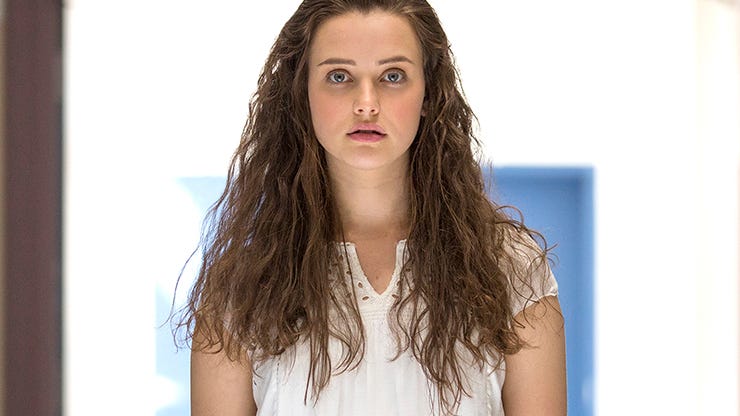Join or Sign In
Sign in to customize your TV listings
By joining TV Guide, you agree to our Terms of Use and acknowledge the data practices in our Privacy Policy.
All the 13 Reasons Why Controversy, Explained
What do teens actually think of the polarizing series?
Since its release on March 31, 2017, Netflix's 13 Reasons Why has become one of the most buzzed-about shows of the year: a cult favorite YA novel-turned-highly-bingeable small-screen series, with the imprimatur of producer Selena Gomez and a storyline made for discussion on social media.
But with popularity comes controversy, one that has only gotten fiercer as 13 Reasons Why racks up tweets, shares, and online think pieces to go with its growing audience. With its portrayal of a myriad of complex issues including bullying, sexual assault, and self-harm -- including a graphic scene which depicts one character's suicide onscreen and in disturbing detail -- the Netflix series has been scrutinized and condemned by critics who feel that its content is inappropriate for young viewers.

Katherine Langford,13 Reasons Why
Beth Dubber/NetflixThe backlash began when some mental health advocates argued that 13 Reasons Why was guilty of glamorizing teen suicide and endangering vulnerable teens, concerns to which Netflix responded to by adding stronger language to the warning cards that run in advance of episodes containing potentially disturbing subject matter, as well as an overall advisory for viewers just beginning to watch the series.
However, the popularity of the series among middle and high school students has already left educators and parents scrambling to figure out how to deal with the tough conversations it's sparked -- with at least two school districts in Canada banning discussion of the show outright, and many more sending home letters to parents warning them about its content. One Florida school district reported a drastic increase in incidents of self-harm among its students and cited 13 Reasons Why as a contributing factor, while The National Association of School Psychologists issued a warning statement that the show's, "powerful storytelling may lead impressionable viewers to romanticize the choices made by the characters and/or develop revenge fantasies."
With the popularity of 13 Reasons Why continuing to grow at an unprecedented rate (the series has already claimed one record for being the most tweeted-about in Netflix history), the conversations about it are unlikely to stop anytime soon. Within the past week, however, teens themselves have begun to take the spotlight in the ongoing conversation about 13 Reasons Why -- and while they readily acknowledge the show's shortcomings, they also largely disagree with the efforts to prevent discussion of the issues it raises.
In an interview with New York Magazine,one 17 year-old said, "It's so tragic; it's absolutely terrifying and very sad; and there's really no good way for the school to go about comforting everyone. But when the school spoke out against this show that students were watching to learn something, I think that was really a bad move on their part."
13 Reasons Why is currently available to stream on Netflix.